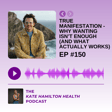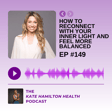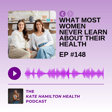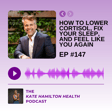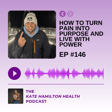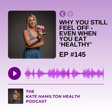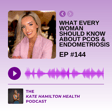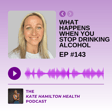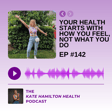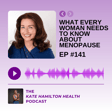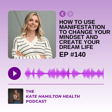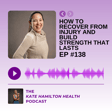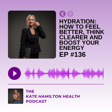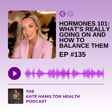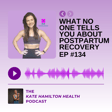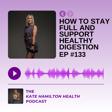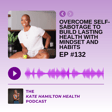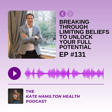
#139: How to balance hormones naturally and feel like yourself again
Are you feeling off, tired, or not quite yourself lately? In this episode of the Kate Hamilton Health Podcast, we’re chatting about all things hormonal balance - what it means, why it matters, and how you can start supporting your hormones naturally.
I’ll walk you through the essential functions of your endocrine system, share common signs your hormones may be out of whack, and reveal how everyday factors like stress, diet, and movement can throw things off (or help bring them back into balance). Plus, I’ll give you simple, actionable tips to help you feel more energised, clear-headed, and in tune with your body - starting today.
Whether you’re curious about symptoms like fatigue, mood swings, or irregular cycles, or just want to better understand your body, this episode is your roadmap to hormone health made simple.
EPISODE HIGHLIGHTS:
[0:00] - Welcome to the Kate Hamilton Health Podcast
[1:40] - Understanding hormones and how they impact your body
[5:07] - What causes hormonal imbalances and how to spot the signs
[7:49] - Daily habits that support hormone balance naturally
[11:30] - One small change you can make today to start feeling better
Links & Resources:
If you enjoyed this episode, please subscribe, leave a review, and share it with friends who might benefit. For more health and fitness tips, follow me on Instagram and TikTok @katehamiltonhealth.
Music b LiQWYD Free download: hypeddit.com/link/xxtopb [http://hypeddit.com/link/xxtopb] Promoted by FreeMusicPromo [https://www.youtube.com/channel/UCbycji-eySnM3WD8mbxPUSQ] / @freemusicpromo
